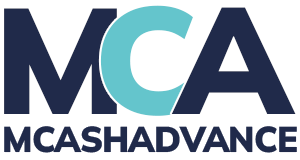
As a direct MCA provider, we see it every day, business owners applying for funding without fully understanding how underwriting works. They’re often unsure what documents are needed, what red flags might hurt them, or why a factor rate came back higher than expected.
That confusion can delay approvals or lead to declined applications.
This article walks you through the entire MCA underwriting process, what underwriters check, how your risk is scored, and what red flags could increase your cost or stop your application altogether. If you know what to expect, you’ll be in a much stronger position to qualify.
What Does an MCA Underwriter Do?
MCA underwriters are trained risk analysts who evaluate business funding applications to decide whether an advance can be approved, and if so, under what terms.
They review your application materials, financial history, and business performance to assess repayment risk. Based on this risk, they determine the factor rate (your cost of capital), how much funding to offer, and whether to approve your request at all.
Today, many MCA providers use a mix of automated pre-screening tools and manual review. For example, if you connect your bank account using a secure API login like Plaid, the system can pull and analyze transaction data instantly. If anything in the data looks high-risk or inconsistent, it gets flagged for manual review.
What Documents Are Reviewed During Underwriting?
Here are the most common documents and data types reviewed by underwriters:
- Business bank statements (3–6 months)
- Credit card processing reports
- Monthly revenue summaries
- Owner’s personal FICO score
- Business credit profile (if available)
- Government-issued ID
- Business entity documents (LLC, Corp, etc.)
- Tax ID / EIN verification
Some MCA providers may also request login access to your bank account for real-time data verification. This helps speed up underwriting and reduces fraud.
Key Criteria Evaluated by MCA Underwriters
Monthly Credit Card Sales
Underwriters evaluate your credit card sales volume through your merchant processor and bank deposits. Higher and consistent monthly credit card sales signal reliable repayment ability, since repayments are often deducted daily from card sales.
Annual and Monthly Revenue
Your total business revenue, credit card and otherwise, is analyzed to calculate how much funding to offer. Most providers cap funding at 10% to 25% of your annual gross revenue.
Debt-to-Income (DTI) Ratio
This compares your existing monthly debt obligations against your monthly revenue. Most MCA providers prefer a DTI of 36% or lower.
Debt-to-Asset Ratio
If asset information (like inventory, equipment, or property) is provided, the underwriter may calculate your debt-to-asset ratio. A healthy range is typically 30% to 60%, indicating that your liabilities don’t outweigh your owned assets.
Ending Daily Balance
Many underwriters check your daily ending balance in bank statements to ensure you maintain enough reserves. A pattern of low or negative daily balances can trigger concern.
NSF (Non-Sufficient Funds) Events
Frequent NSFs, when you try to spend more than your account holds, signal poor cash flow management and increase risk.
Chargebacks
If you have a high rate of customer chargebacks (disputed credit card transactions), it could indicate instability in revenue or customer service issues.
Revenue Trends & Seasonality
Underwriters assess whether your revenue is stable, growing, or declining. They also review for seasonal patterns and may adjust approval criteria if your business has predictable off-peak months.
Business Type & Industry Risk
Some industries are considered higher risk than others. For example, travel agencies, adult entertainment, and cannabis businesses often face more scrutiny than healthcare or legal services. Your NAICS (industry classification) code helps determine this risk level.
Time in Business
Most providers prefer businesses that have been operating for at least 6 months. Less than that may result in automatic denial or require stronger credit card volume to offset risk.
Use of Funds
If your stated use of funds is vague or risky, such as repaying another advance or investing in crypto, it could trigger concerns about your repayment capacity.
How Underwriters Assign Risk: The Paper Grade System
Once your financial data and application are reviewed, the underwriter will assign a risk grade, commonly referred to as a paper grade.
This grade helps determine your approval odds, factor rate, and funding amount.
Paper Grade A (Best Quality)
- FICO score: 650+
- Strong business credit
- Clean bank statements
- No NSFs or overdrafts
- No liens or legal issues
- Low DTI
Grade A businesses are considered the lowest risk and typically receive the best rates and terms.
Paper Grade B
- FICO score: 600–649
- Occasional NSFs or minor issues
- Solid revenue, consistent deposits
Grade B applicants are still strong but may pay slightly higher rates.
Paper Grade C
- FICO score: under 600
- High DTI or moderate risk profile
- High credit card sales can offset score
Underwriters may approve these files at a higher cost if revenue supports repayment.
Paper Grade D (Highest Risk)
- FICO score: under 550
- Frequent NSFs, overdrafts, poor credit
- Prior defaults or legal judgments
These files are unlikely to be approved unless there’s extremely strong credit card volume to offset risk. If approved, expect the highest factor rates.
Red Flags That Can Hurt Your Application
Underwriters look for warning signs during their review. Some of these may not appear on your initial application but show up in public records or through data analysis.
Common Red Flags:
- Past Bankruptcies
- Unpaid Judgments or Liens
- Frequent NSFs or negative balances
- Major drops in revenue
- Criminal history (especially financial crimes)
- Undisclosed existing MCAs (stacking)
- Evictions or late rent payments
- Excessive chargebacks
Even one of these issues can lower your paper grade or result in denial. If you do receive an offer, expect a higher cost.
If any of these red flags apply to your business, it’s best to disclose them upfront with an explanation. That transparency may improve how your application is assessed.
What Happens After Underwriting?
If approved, the underwriter will finalize the offer by determining:
- Advance amount (usually 10% to 25% of annual revenue)
- Factor rate (fixed fee multiplier)
- Daily repayment percentage or fixed daily amount
- Term length (typically 3 to 12 months)
The offer is then presented to you for review. If accepted, funds are typically deposited within 1 to 3 business days, with some approvals funded in as little as 24 hours.
After funding, the provider will continue monitoring your repayment behavior. Missed payments, excessive NSFs, or significant revenue drops could affect your ability to renew or receive future funding.
How Our MCA Underwriting Process Works
As a direct provider, we’ve built our underwriting process to be clear, fast, and fair. When you apply with us, here’s what happens behind the scenes:
- Initial Pre-Screening
Once you submit your application, we review your business’s basic details and credit card sales to make sure you meet our minimum requirements. - Bank Statement Review
We’ll securely collect and review your recent business bank statements. If you prefer, you can connect your bank account using a secure login to speed up the process. - Risk Evaluation
Our underwriters check for consistency in your deposits, look for any NSFs, and evaluate your average daily balance. We also review your credit score, time in business, and any existing debt. - Paper Grade Assignment
Based on your risk profile, we assign your file a paper grade. This helps determine your approval odds, your factor rate, and your funding amount. - Offer Structuring
If approved, we’ll send you a funding offer. You’ll see the total amount, the factor rate, and your estimated daily repayment. We’re fully transparent, no hidden fees, no surprises. - Fast Funding
If you accept the offer, we typically fund within 1 to 3 business days, with some approvals funded in as little as 24 hours.
We’re here to make the process as smooth as possible. If anything in your application raises a red flag, we’ll let you know and give you the chance to explain it before making a final decision.

